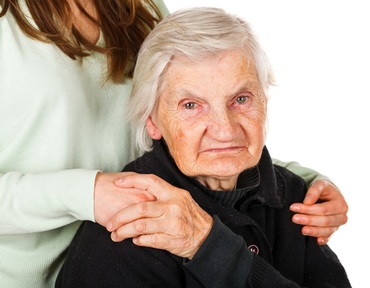Since lockdown, dementia carers have struggled with exhaustion, depression and anxiety
Family and friends have spent 92 million extra hours caring for people with dementia since lockdown began on 23 March, according to a new report.

The investigation by the Alzheimer’s Society has revealed that the overwhelming pressure on informal carers has made them exhausted, anxious and depressed.
In its new report ‘Worst hit: dementia during Coronavirus’ the charity shows the catastrophic impact coronavirus has had on the 850,000 people in the UK living with dementia – with nearly 14,000 dying from the virus between March and June.
Alzheimer’s Society warns that the government must learn lessons around testing, PPE, and infection control to protect people with dementia from coronavirus this winter, and prevent further tragedy.
“It’s obvious that the government thinks unpaid family carers will sort themselves out. We’re not a priority,” said Alzheimer’s Society chief executive Kate Lee.
“The tens of thousands of deaths of people with dementia – and the grieving families each one has left behind - must make us pause. I know if social care had been on an equal footing with the NHS we would not have seen deaths on such a scale.
“And I’m so angry that families and friends out in the community have been left to fend for themselves as the people they love with dementia have declined in front of their eyes. They have been fighting against the odds to give decent care to their loved ones.”
Family carers are 'working all hours and barely sleeping'
She revealed that staff on the Alzheimer’s Society Dementia Connect support line speak to family carers every day who can’t get time to see the GP, are working all hours and barely sleeping.
Ms Lee added: “The Government must never abandon families with dementia again. Lessons must be learnt to prevent any further tragedy this winter. Coronavirus has laid bare the dire state of social care for all to see – the lasting legacy from this crisis must be a universal social care system, free at the point of use, that provides quality care for every person with dementia who needs it.”
The Alzheimer’s Society carried out a survey which found 95 per cent of family carers said extra caring hours had negatively impacted their physical or mental health, with 69 per cent of over 1,000 people the charity spoke to reporting feeling constantly exhausted.
Sixty-four per cent felt anxious, 49 per cent felt depressed, and 50 per cent developed problems sleeping. Fourteen per cent had no time to see a GP about a health problem, and more than one in ten (13 per cent) said they’d had an injury from caring.
They also found that during the pandemic informal carers had been caring an average of nearly 10 hours a week more than normal.
Seventy-six-year-old Gordon Weldon from Scarborough, who was diagnosed with prostate cancer last year and cares for his wife Sue with Frontotemporal dementia, has lost the paid home care worker who visited an hour a day, and his wife can no longer attend a day care centre four days a week.
Mr Weldon said: “The carers used to really help with my stress, giving me some time off to look after my own health. But when lockdown hit, I stopped getting that care and the day centre closed. It was all on me, and I didn’t want Sue sitting in bed all day. So, I took it all on – the morning getting up, cooking all the meals, all the washing, the housework. Sue’s not able to do anything for herself now, so it was exhausting and I began to feel very depressed.”
Alzheimer’s Society is urging the Government to:
• commit to long-term reform of the UK’s social care system so that it becomes available to all and free at the point of use, funded in the same way as the NHS, education and other public services
• guarantee that where care was stopped due to coronavirus precautions (particularly domiciliary care), it will be reinstated when deemed safe, without the need for unnecessary further formal assessment
• ensure that the Infection Control Fund remains in place until at least April 2021 and care providers should be able to use that fund flexibly, including for infection control, technology and supporting visits
• recognise the key role that informal carers play in the lives of people living with dementia by allowing at least one informal carer per care home resident to be a designated key worker and have access to training, COVID-19 testing/vaccinations and PPE
• ensuring carers assessments can be completed and respite care is available so that carers are able to take short breaks
• develop a clear strategy to help people affected by dementia recover from the effects of the pandemic, including rehabilitation to counteract effects on cognitive or physical functioning, support for mental and physical health, and speech and language therapy.
You can read the full report at https://www.alzheimers.org.uk/worsthit
Latest News
 29-Jul-24
Dementia Bus gives carehome.co.uk staff insight into life with dementia
29-Jul-24
Dementia Bus gives carehome.co.uk staff insight into life with dementia
 27-Jul-23
UK's top home care agencies in 2023 revealed
27-Jul-23
UK's top home care agencies in 2023 revealed
 30-Nov-22
A quarter of older people keep their falls secret from family
30-Nov-22
A quarter of older people keep their falls secret from family
 29-Nov-22
'Covid-19 has not gone away' say terminally ill
29-Nov-22
'Covid-19 has not gone away' say terminally ill
 28-Nov-22
IT consultant who received poor care opens 'compassionate' home care business
28-Nov-22
IT consultant who received poor care opens 'compassionate' home care business